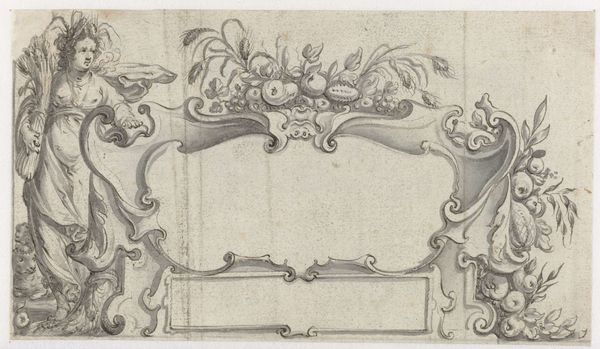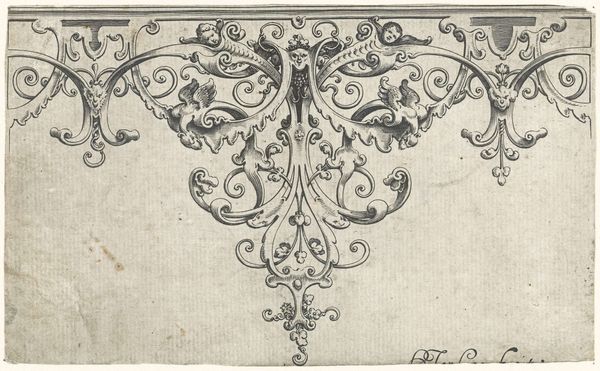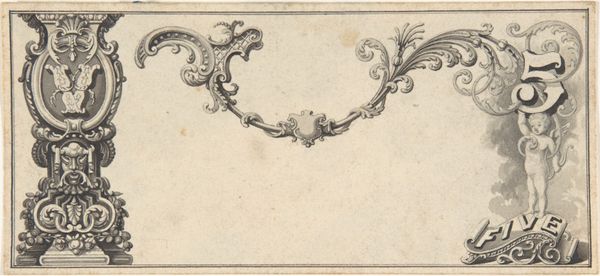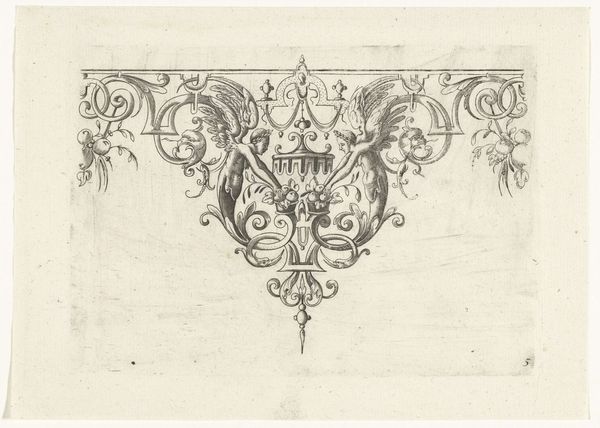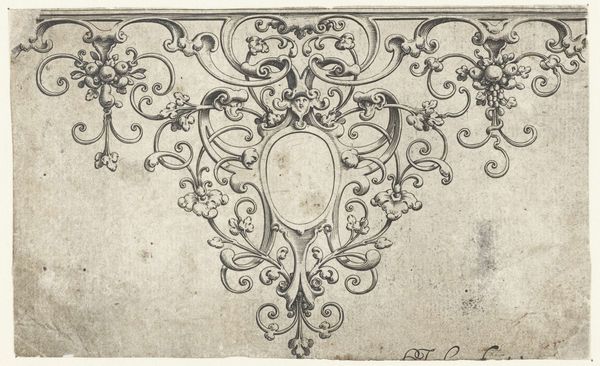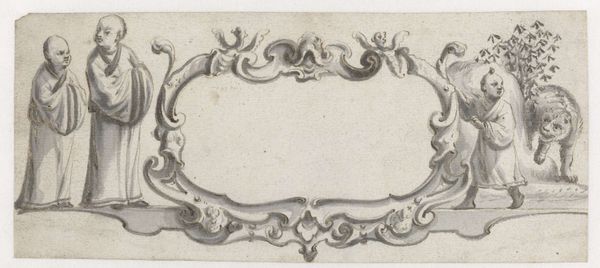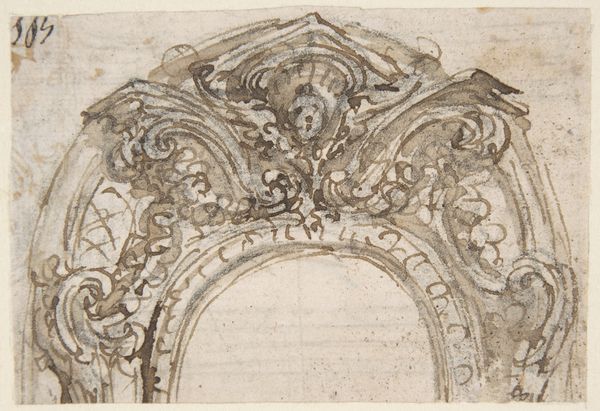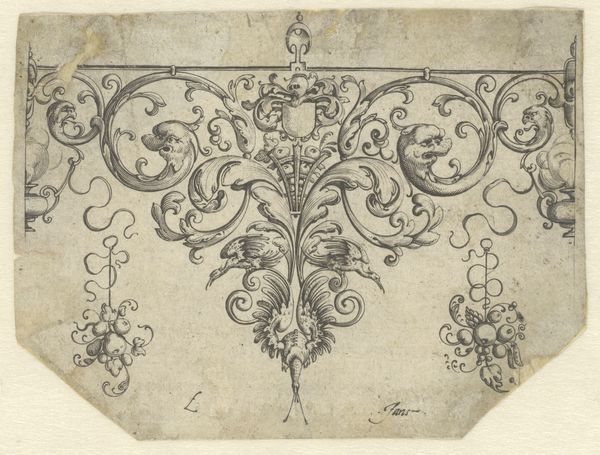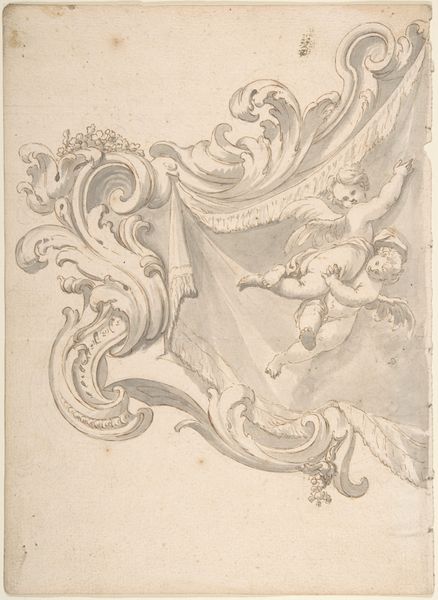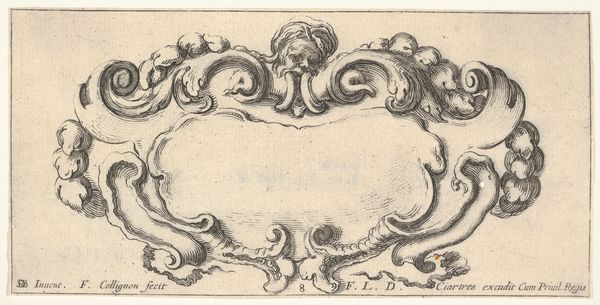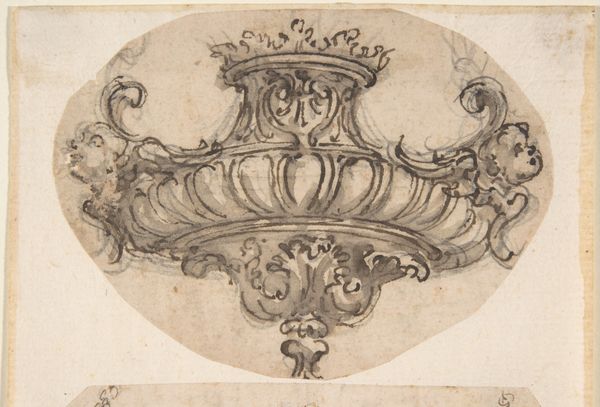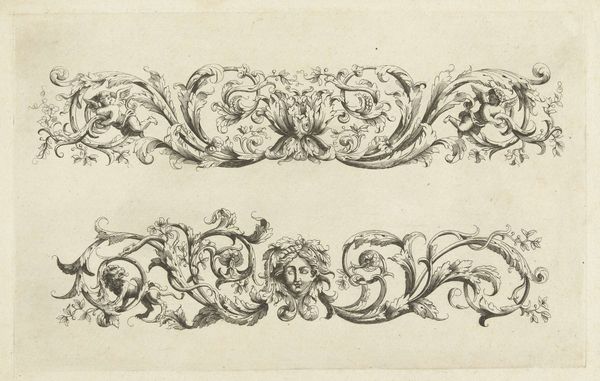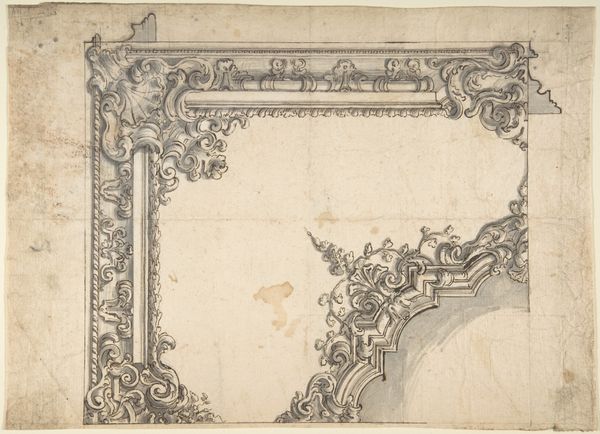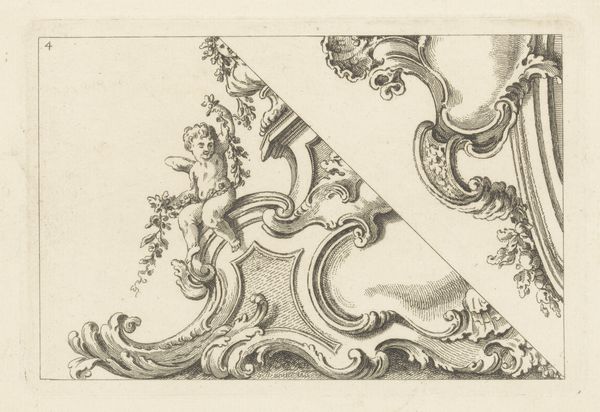
drawing, ornament, ink
#
drawing
#
ornament
#
baroque
#
form
#
ink
#
ink drawing experimentation
#
line
#
pen work
#
sketchbook drawing
Dimensions: height 75 mm, width 137 mm
Copyright: Rijks Museum: Open Domain
Editor: Here we have Pieter Jansz.'s "Fragment van een cartouche met een festoen," created sometime between 1630 and 1672, an ink drawing on paper. It feels like a preliminary sketch, all flowing lines and shading. What can you tell me about its visual structure? Curator: Note the dynamism inherent in the line work itself. The interplay of thin, delicate lines defining the contours of the floral garland, juxtaposed against the broader, bolder strokes which give form to the cartouche, offers a rich visual experience. How would you describe the effect of the shading? Editor: It makes it pop, giving it volume. The festoon of flowers, especially, seems to cascade off the page. Curator: Precisely. The artist uses chiaroscuro not merely to represent form, but to articulate a spatial relationship between the ornament and the surface. Semiotically, the fragment points beyond itself, alluding to a larger decorative scheme, perhaps for a building or manuscript. Editor: So, it’s meant to feel incomplete, as a piece of something bigger? Curator: One could say the fragment itself becomes a signifier of architectural possibility. How does the lack of a defined center shape your understanding? Editor: I see now that without a focal point, the eye is forced to move around the curves. The lines dictate the gaze. It really is all about the form! Curator: Indeed. The drawing epitomizes how lines can imply form and movement. Editor: I hadn't considered how much could be communicated through line and shading alone! Thanks. Curator: A pleasure. This fragment underscores the profound possibilities within the language of drawing.
Comments
No comments
Be the first to comment and join the conversation on the ultimate creative platform.
